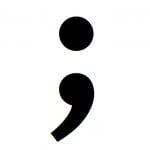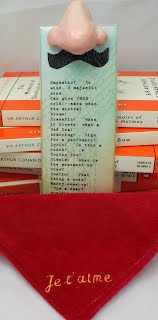I have a lovely friend who has been on sabbatical for nearly
a year and has been travelling round the world enjoying a plethora of temples,
beaches and alcohol of every flavour, soaking up cultural experiences and
coming to an understanding of what rather irks him about the human race. He has documented his experience in a Blog (http://my12monthcareerbreak.wordpress.com/2012/10/15/top-5/) It is very funny, and has, on more than one occasion,
almost caused me to expectorate coffee/tea/red wine all over my living room as a
gleeful chortle instinctively escaped.
The link above takes you directly to a particular Blog post
I enjoyed recently, about a game he plays with friends: Top five. It’s straight forward: come up with the top
five things in life that make you happy.
Conversely, to satisfy that acerbic streak we all have, he suggests we
come up with a top five “shovel list”, the thinking being that it should be
things we would like to see hit with the afore-mentioned garden implement.
This evening, I asked my husband what his “Top Five” would
be and here it is:
- A strong cheese (he was eating some Stilton at the time and I did say that his choice could be out with the things he could see from the sofa or the things he was doing at that very moment…)
- Noticing the small things (sometimes he can go into a room, walk down the street, and see something marvelous that I just didn’t notice… Quite often this phenomenon occurs while we are in the car where he will point out a particularly interesting vehicle when all I want to do is sleep. I shall point out that usually, this is not when I am driving.)
- 6 Music- the best music station in the BBC’s air-wave vocabulary. ( I think he has a crush on Lauren Laverne.)
- Dogs with their heads protruding from car windows while the vehicle is in motion, especially if their tongues are lolling in the breeze. He has often said how intrinsically happy that makes him.
- Success (not the crazy, driven kind, but the small successes after a long stretch of bad luck. He recently got a new job and said that it was the first time in a long time when he experienced the involuntary need to jump upwards while punching the air.)
- He said that the wife and kids were a given, but did add that nothing makes him more happy than the welcome our boys give him when he comes in from work. (Perhaps, I will qualify that by saying, except when one, or both of them, is screaming, having a tantrum, or whinging.)
Shovel List
- Lazy T.V journalism. Even our trusty BBC are culprits of the use of stock phrases or the use of overly emotive language akin to channels on which there are adverts.
- People quoting from films they haven’t seen, like when lines from films become detached from the film they were in, in the first place, like “I love the smell of napalm in the morning,” when the person has never seen “Apocalypse Now,” nor do they know what napalm is. As an add on, he really does not like it when people wear fashion T-shirts with the name of an old, pretty cool band on it that they definitely will not be listening to on a regular basis, nor are they a fan of. He pities the Ramones whose name and aesthetics have been sold to the consumer as a product. It’s all about the music, maaan.
- Fern Cotton (‘yoof’ TV presenter) , who embodies the zeitgeisty insincerity we both hope goes out of fashion, and soon.
- This may be a really British thing, I don’t know, but people who write “Happy Birthday Tam (for example)” on old beds-sheets and, in the middle of the night, affix it to a major roundabout in their place of domicile. My husband sees this as being a real indignity… how does one decide which bedsheet is going to be utilised to facilitate such an outpouring of emotion-the newest, the cleanest? I doubt it…although I don’t think either of us has ever looked close enough to find out.
- Finally, when nice cheese is wrapped in white, wax paper, but when you open it you discover, to your absolute horror, that the supermarket shrink-wrapped it anyway. (Yip, he notices the small things, that are in front of him right this minute!)
If I asked our son-the one who can talk-what his top five
were he’d say the following:
- Bob the Builder.
I would say, “What else would you like to put on your top
five list?” and he would look puzzled.
“But,
I like Bob the Builder.” Quick
list. Simple tastes.
I am musing over my own list.
 | ||
| Grrrrr. Why oh why? |
 |
| yeah!!!!! |












 Thanks to Ali for nominating me for the Versatile Blogger award!
Thanks to Ali for nominating me for the Versatile Blogger award! 
